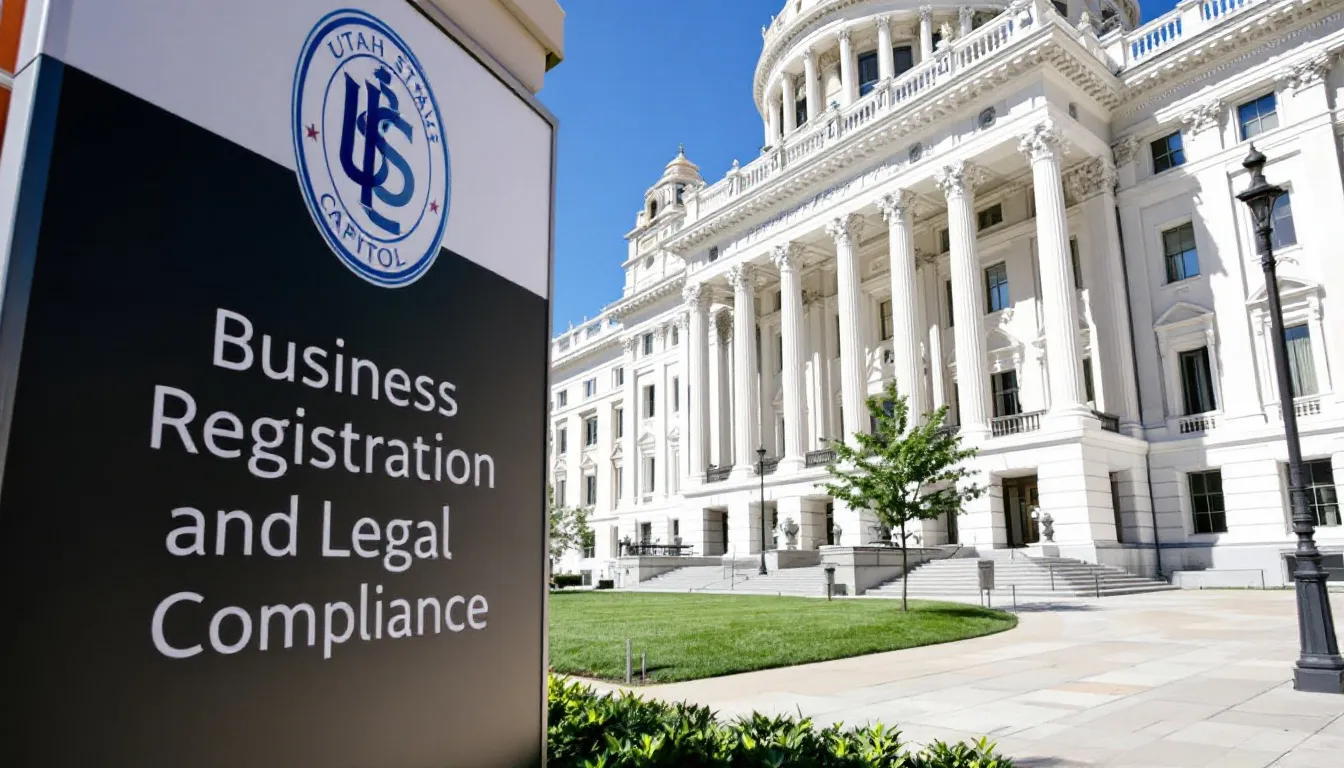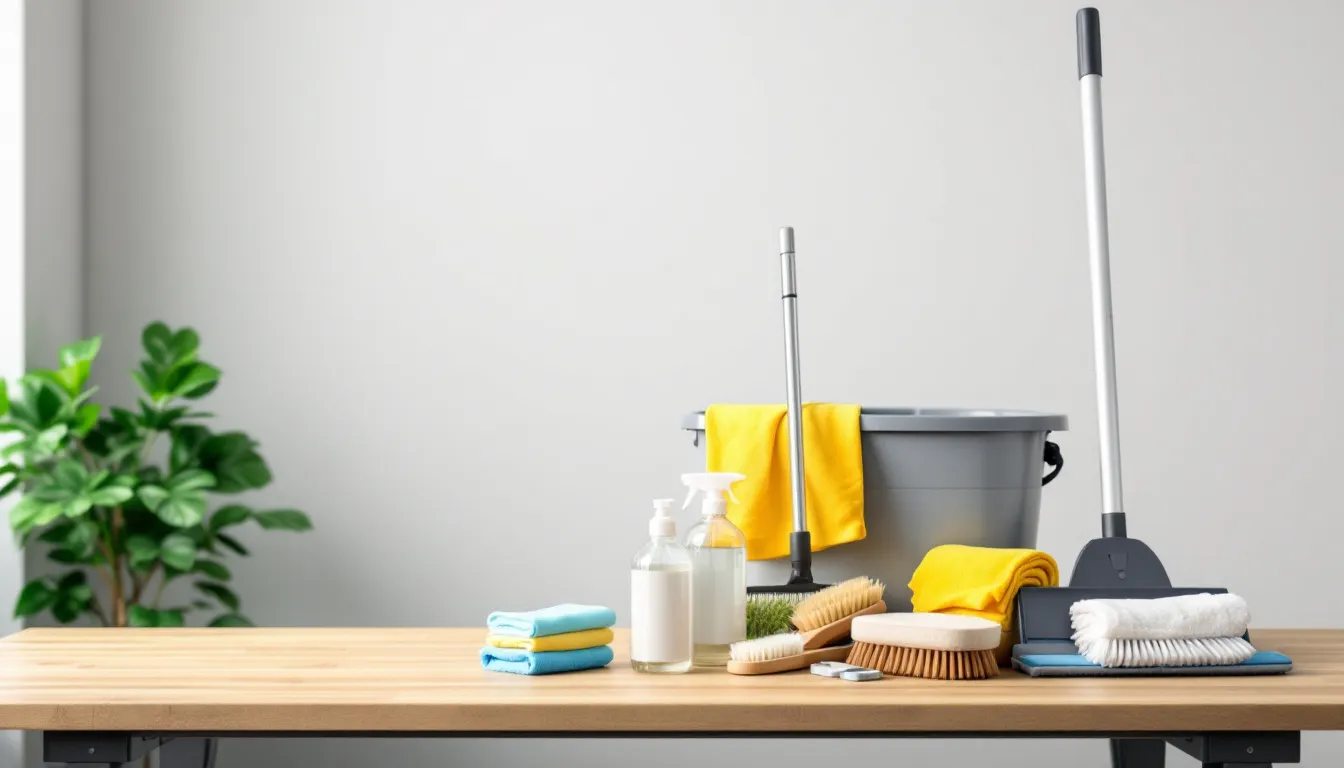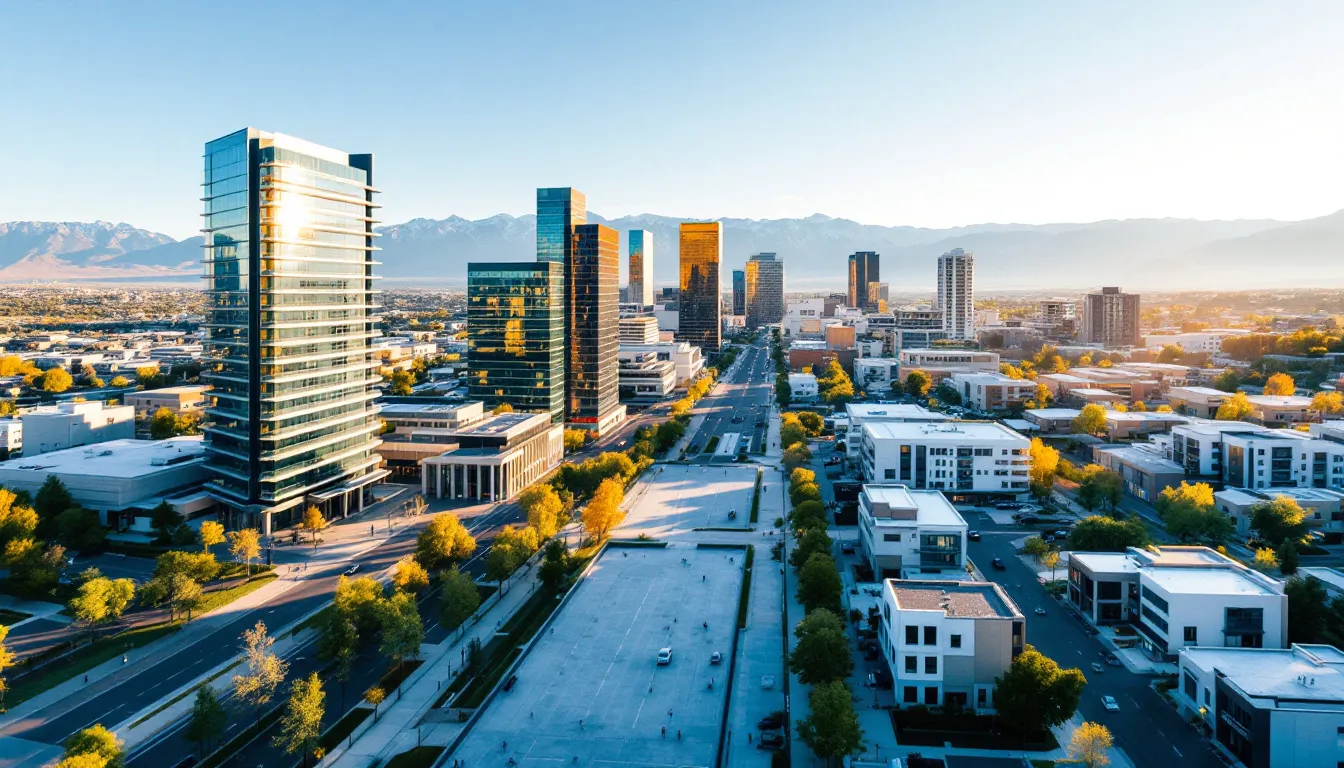Utah’s booming economy and business-friendly environment create the perfect storm for cleaning business success. With a 15.9% population surge over the past decade and a thriving tech sector driving demand, you’re not just starting a business—you’re positioning yourself to build a cleaning empire in one of America’s most entrepreneur-friendly states.
Starting a cleaning business in Utah offers excellent opportunities in a growing economy with strong demand for both residential and commercial cleaning services. This comprehensive guide provides step-by-step instructions to help you navigate Utah’s specific requirements, from initial market research through business launch and growth strategies.
The time for playing small is over. Utah’s market is hungry for professional cleaning services, and those who move decisively will claim their territory while others hesitate. This isn’t about surviving—it’s about building a business that creates freedom, generates real wealth, and establishes your legacy in the cleaning industry.

Essential Steps to Launch Your Utah Cleaning Business
Market Research and Business Planning
Your cleaning business success starts with understanding Utah’s unique market landscape. The state’s diverse economy spans from Salt Lake City’s financial district to Utah County’s tech corridor, each presenting distinct opportunities for both residential and commercial cleaning.
Analyze Utah’s cleaning market using Google Maps and Yelp to research competitors in Salt Lake City, Provo, and other major markets. Don’t just count competitors—study their pricing, services, and customer feedback. This intelligence becomes your competitive advantage.
Identify service gaps in residential vs commercial cleaning across Utah County, Davis County, and Weber County. Utah’s growing population means established companies can’t serve everyone. Find your niche where demand exceeds supply, whether that’s eco-friendly residential cleaning in Park City or specialized commercial cleaning for tech startups in Lehi.
Create financial projections including Utah’s average cleaning rates ($25-45/hour residential, $0.10-0.20/sq ft commercial). These aren’t just numbers—they’re your roadmap to profitability. Factor in Utah’s lower cost of living compared to coastal states, which allows competitive pricing while maintaining healthy margins.
Develop a business plan addressing Utah’s specific market conditions and growth opportunities. Your plan should account for seasonal variations, from winter’s increased demand due to salt and snow tracking to spring’s traditional deep-cleaning surge. This document becomes your blueprint for scaling operations and securing financing.
Utah Business Registration and Legal Structure
Every successful utah cleaning business starts with proper legal foundation. Utah’s OneStop Business Registration System streamlines the process, but choosing the right business structure determines your liability protection, tax obligations, and growth potential.
Register your business name through Utah’s OneStop Business Registration System. Your business name isn’t just identification—it’s your brand’s first impression. Ensure it’s memorable, professional, and available across digital platforms where clients will find you.
Choose appropriate business structure (LLC, Corporation, or Sole Proprietorship) with Utah Division of Corporations and Commercial Code (DCCC). Most cleaning businesses benefit from LLC protection, shielding personal assets while maintaining operational flexibility. Sole proprietorship offers simplicity but leaves you personally liable for business debts and legal issues.
For partnerships, consider how individual partners will share responsibilities, profits, and decision-making authority. A limited partnership structure might work if you have silent investors, while general partnerships suit active co-owners. Document everything to prevent future conflicts that could destroy your business.
File DBA registration if operating under a trade name different from your legal business name. This “doing business as” registration protects your brand and ensures clients can write checks to your operating name.
Obtain Federal EIN from IRS for tax purposes and business banking. Your employer identification number becomes essential for opening business bank accounts, hiring employees, and maintaining clear separation between personal and business finances.

Utah Licensing and Permits
Proper licensing separates professional cleaning companies from unlicensed operators who undercut the market. Utah’s requirements protect both businesses and consumers, creating competitive advantages for compliant companies. For those interested in operating outside Utah, understanding how to obtain a cleaning business license in Colorado is equally important.
Apply for general business license through your specific Utah city or county (Salt Lake City, Provo, Ogden, etc.). Each municipality sets its own requirements and fees, so research your local city ordinances thoroughly. Some areas require additional permits for chemical storage or waste disposal.
Register with Utah State Tax Commission for sales tax license and employer withholding if hiring employees. Understanding tax obligations from day one prevents costly penalties and ensures smooth operations as you scale. Many cleaning services qualify for sales tax exemptions on certain business-to-business transactions.
Check municipal requirements for cities like Sandy, West Jordan, and St. George which may have additional licensing. Rural Utah cities often have different requirements than major metropolitan areas. Some require home-based business permits or have restrictions on commercial vehicle parking.
Obtain any specialized permits for commercial cleaning or hazardous material handling if applicable. If you plan to offer services like biohazard cleanup, mold remediation, or post-construction cleaning, additional certifications and licenses become necessary. These specialized services command premium pricing but require significant compliance investments.
Your cleaning license validates your professionalism and legal operation. It’s not just paperwork—it’s proof that you’re building a legitimate business that will last.
Insurance and Bonding Requirements
Insurance isn’t just protection—it’s the foundation that allows you to operate confidently and win contracts that unlicensed competitors can’t touch. Commercial auto insurance becomes essential if you’re using vehicles for equipment transport or traveling between client locations.
Secure general liability insurance ($1-2 million coverage recommended for Utah cleaning businesses). This coverage protects against property damage claims and bodily injury incidents. When you’re working in clients’ homes and businesses, accidents happen. Insurance ensures these incidents don’t destroy your business.
Obtain workers’ compensation insurance once hiring employees (required by Utah law). This coverage protects your workers and your business from injury-related lawsuits. Utah’s rates are competitive nationally, but costs vary based on your claims history and safety programs.
Consider bonding through Utah-licensed surety companies to protect client property. Bonding provides reimbursement if employees steal or damage client property. Many commercial contracts and government work require bonding, making it essential for scaling beyond residential services.
Explore commercial auto insurance if using vehicles for cleaning services. This protects your business vehicles, equipment, and provides liability coverage for accidents during business operations. Standard personal auto policies don’t cover commercial use.
Business insurance isn’t expense—it’s investment in your ability to compete for larger contracts and build client trust that translates to premium pricing.
Equipment and Supply Setup
Your equipment and supplies determine service quality, efficiency, and profitability. Investing wisely from the start prevents expensive mistakes and establishes professional credibility that justifies premium pricing.
Purchase essential cleaning supplies suitable for Utah’s climate and altitude considerations. Utah’s high altitude affects how some chemicals perform, and the dry climate creates unique dust and allergen challenges. Source products that perform effectively in these conditions.
Invest in professional equipment including HEPA vacuums for Utah’s dust and allergen concerns. Utah’s geography creates specific air quality challenges, especially along the Wasatch Front. HEPA filtration isn’t just better cleaning—it’s health protection that clients value and pay premium rates for.
Source eco-friendly products to appeal to Utah’s environmentally conscious market. Utah residents increasingly demand green cleaning solutions, especially families with children and pets. Eco-friendly positioning allows premium pricing while accessing growing market segments.
Budget $2,000-5,000 for initial equipment and supply investment. This investment covers professional vacuums, microfiber systems, cleaning carts, uniforms, and initial chemical inventory. Quality equipment lasts longer, performs better, and creates the professional image that wins higher-paying clients.
Don’t buy cheap equipment that breaks down or performs poorly. Your tools are your reputation in physical form. Invest in commercial-grade equipment that handles heavy use and delivers consistent results.

Pricing Strategy for Utah Market
Your pricing strategy determines profitability, market positioning, and long term success. Utah’s market offers opportunities for premium pricing when you deliver exceptional value and professional service.
Research competitor pricing in Wasatch Front region vs rural Utah areas. Urban markets like Salt Lake City and Provo support higher rates due to increased cost of living and greater demand. Rural areas may require adjusted pricing but offer less competition.
Set hourly rates between $25-45 for residential cleaning based on service area. Your pricing should reflect local market conditions, service quality, and unique value propositions. Premium pricing becomes achievable through superior service, reliability, and professional positioning.
Calculate square footage rates for commercial clients ($0.10-0.20 per sq ft typical in Utah). Commercial cleaning often provides steadier revenue streams and higher volumes. Develop pricing models that account for frequency, scope, and special requirements.
Factor in Utah’s cost of living variations between Salt Lake City metro and smaller cities. Adjust pricing strategies for different markets while maintaining consistent profit margins. Some areas support premium pricing while others require volume-based approaches.
Your pricing isn’t just numbers—it’s a statement about your business value and market position. Price confidently based on the professional service you deliver, not what desperate competitors charge.
Why Utah is Ideal for Cleaning Businesses
Utah’s business environment creates unprecedented opportunities for cleaning business success. Understanding these advantages allows you to leverage them for maximum growth and profitability.
Utah’s population growth of 15.9% (2010-2020) creates increasing demand for cleaning services. This isn’t just growth—it’s sustained expansion that ensures long-term market demand. New residents need cleaning services, and growing communities require commercial cleaning.
Strong economy with low unemployment rate (2.9% as of 2024) means more disposable income for cleaning services. When people have secure employment and rising incomes, professional cleaning becomes affordable necessity rather than luxury. This economic strength supports premium pricing for quality services.
High concentration of dual-income households along Wasatch Front increases residential cleaning demand. Busy professionals choose time over money, creating consistent demand for regular cleaning services. These clients value reliability and quality over lowest price.
Growing tech industry and business development creates commercial cleaning opportunities. Utah’s “Silicon Slopes” tech corridor generates demand for office cleaning, while construction boom requires post-construction cleanup services. These sectors often pay premium rates for specialized services.
Utah’s business-friendly environment with streamlined OneStop registration system reduces startup barriers and ongoing compliance costs. The state actively supports small business development through reduced regulation and entrepreneur-friendly policies.

Utah-Specific Business Considerations
Understanding Utah’s unique characteristics allows you to adapt your business model for maximum success. These considerations become competitive advantages when properly leveraged.
Seasonal demand fluctuations with higher demand during winter months due to salt and snow tracking require strategic planning. Winter creates additional cleaning challenges that justify premium pricing, while spring surge allows capacity maximization. Plan staffing and marketing around these patterns.
Spring cleaning surge driven by Utah’s strong cultural emphasis on home maintenance creates predictable revenue opportunities. Utah’s cultural values emphasize clean, well-maintained homes, creating consistent demand for deep cleaning services. Market this cultural alignment to build customer loyalty.
Altitude-related considerations for equipment performance and cleaning product effectiveness require adaptation. Some equipment operates differently at Utah’s elevation, and chemical concentrations may need adjustment. Understanding these factors prevents service quality issues.
Cultural factors including large average household sizes creating more cleaning demand benefit volume-based pricing models. Utah families are larger than national averages, requiring more extensive cleaning services. This creates opportunities for premium pricing based on home size and family needs.
Utah’s tax-friendly business environment with competitive corporate tax rates improves profitability compared to high-tax states. Lower tax burden allows competitive pricing while maintaining healthy margins, or premium pricing with superior net income.
Access to Business Resource Centers in Salt Lake City, Provo, and Ogden for ongoing support provides continuing education and networking opportunities. These resources help navigate regulatory changes and business growth challenges.
Growth and Technology Integration
Technology separates growing cleaning companies from those struggling to survive. Implementing systems from day one creates scalability and professional credibility that wins premium clients.
Implement cleaning business software like scheduling and customer management systems from day one. Technology isn’t optional—it’s essential for managing growth, maintaining quality, and maximizing profitability. Start with systems that scale as your business grows.
Leverage Utah’s tech-savvy population with online booking and digital payment systems. Utah residents expect digital convenience and will pay premium rates for companies that deliver seamless experiences. Online booking reduces administrative costs while improving customer satisfaction.
Use route optimization software to manage travel between dispersed Utah communities efficiently. Utah’s geography creates unique logistics challenges, especially serving clients from Salt Lake City to Park City or Provo to Ogden. Efficient routing reduces fuel costs and maximizes billable hours.
Access Utah’s entrepreneur networks and Small Business Development Centers for mentorship. Utah’s startup ecosystem provides resources, connections, and expertise that accelerate business growth. These networks often lead to partnership opportunities and client referrals.
Plan for scaling across Utah’s major markets: Salt Lake Valley, Utah Valley, and Weber County. Each region has distinct characteristics requiring adapted approaches. Systematic expansion allows controlled growth while maintaining service quality.
Technology investments streamline operations, reduce costs, and create competitive advantages that justify premium pricing. Companies that embrace technology thrive while traditional operators struggle with inefficiency.
Starting a cleaning business in utah positions you at the intersection of opportunity and growth. Utah’s expanding economy, business-friendly environment, and growing population create ideal conditions for building a cleaning company that generates real wealth and lasting success.
The market is ready. The opportunity is real. The only question is whether you’ll seize it or watch others build the business you could have created. Utah rewards those who take action, think strategically, and commit to excellence.
Your utah cleaning business isn’t just about cleaning—it’s about building freedom, creating jobs, and establishing a legacy that serves your community while securing your financial future. The state agencies, business resources, and market conditions are aligned for your success.
Stop planning and start building. Utah’s cleaning industry is waiting for leaders who understand that this isn’t just about starting a small business—it’s about creating something significant that lasts.